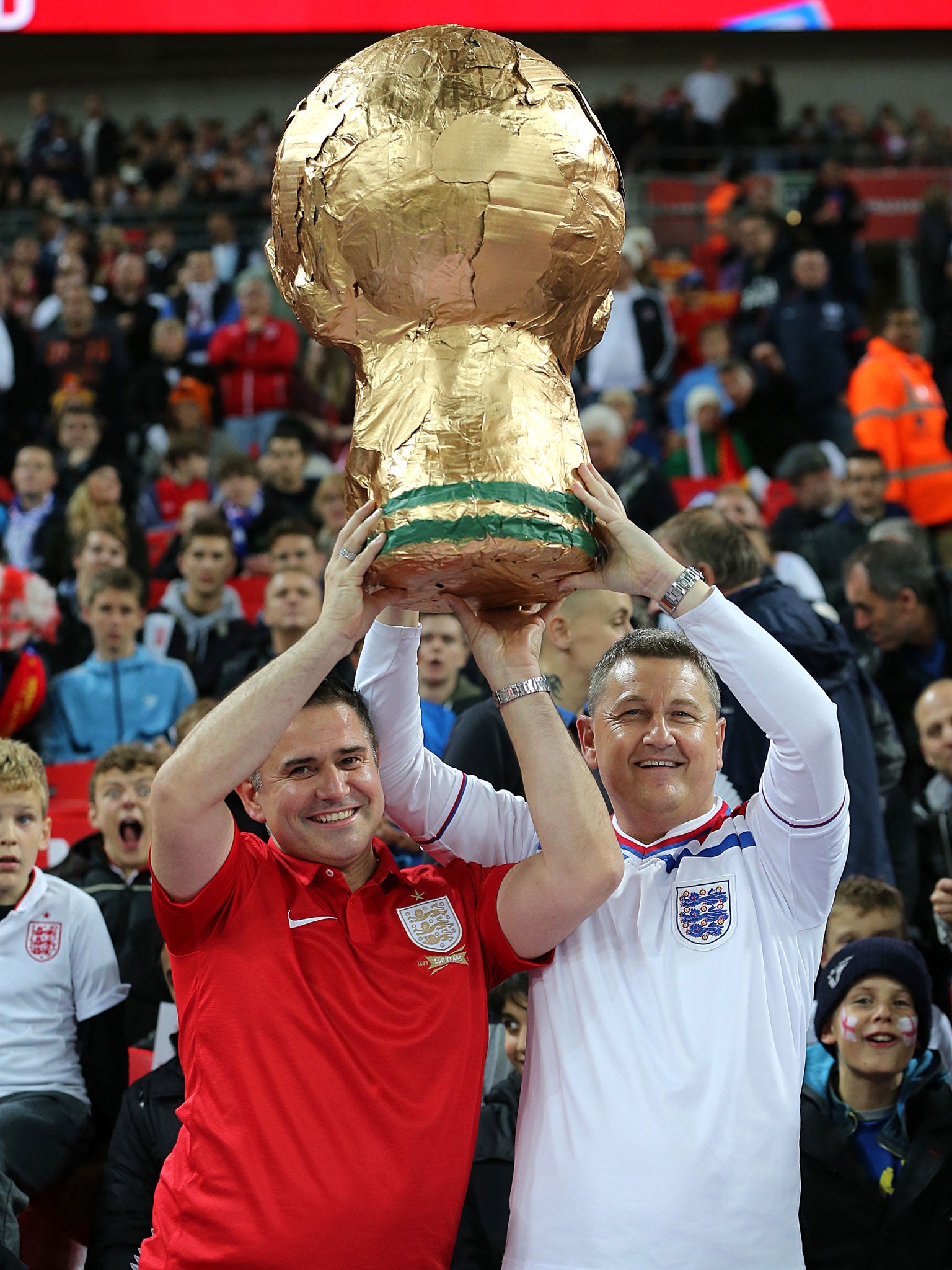Comment: Wembley is not a home ground for England – it’s a handicap
Which constituency does the great temple beneath the arch serve?

Your support helps us to tell the story
From reproductive rights to climate change to Big Tech, The Independent is on the ground when the story is developing. Whether it's investigating the financials of Elon Musk's pro-Trump PAC or producing our latest documentary, 'The A Word', which shines a light on the American women fighting for reproductive rights, we know how important it is to parse out the facts from the messaging.
At such a critical moment in US history, we need reporters on the ground. Your donation allows us to keep sending journalists to speak to both sides of the story.
The Independent is trusted by Americans across the entire political spectrum. And unlike many other quality news outlets, we choose not to lock Americans out of our reporting and analysis with paywalls. We believe quality journalism should be available to everyone, paid for by those who can afford it.
Your support makes all the difference.Identity and what constitutes Englishness are not so much the problem for England on the pitch as in the stands. The English crowd at Wembley neither resembles the community of Three Lions that follows the team abroad nor behaves like it. There will be no FA commission convened to examine the negative consequences of that, however. The FA is financially bound to Wembley, however much it drains the life out of England performances.
England got there eventually against Montenegro to set up the rousing finale on Tuesday, but not before they had delivered another stiff 45 minutes in a setting that at times could not be further from “home”.
England are in a minority among the major European nations in choosing to play their home games in the same arena. This, you might think, ought to foster the requisite sense of ownership and belonging within walls that are exclusively ours. Wembley struggles to be this for a number of reasons.
Firstly, its characterisation as the “home” of football gives it a universal quality that allows it to be claimed by all who play the game. Hence the repeated chorus from England players about how much playing there means to visiting footballers. So in lumping all its eggs in the Wembley basket the FA achieved the unintended paradox of building England a house but not a home. Furthermore, the place lies dormant for weeks on end, reinforcing its use as some kind of sacred experience. This is entirely counter-productive since the lack of frequency does not allow familiarity to build, and the sense that a team is at home is much harder to establish.
Walking down Wembley Way you wonder which constituency the great temple beneath the arch serves. Travelling as an England supporter is an entirely different matter. A hard core of itinerant flag-bearers have over the years established their own vibrant identity. Grouped in one part of the stadium, with standards proclaiming their provenance, this band of brothers ensures England never walk alone on the road, and it is always atmospheric. This same group are much harder to identify at Wembley and the experience loses intensity as a result.
There is always a feeling of otherness about the place, a distance between fan and player that is not felt elsewhere. The endless recycling of the venue as “special” means that many of those lucky enough to have tickets are likely to be experiencing the night as a one-off event. They have probably never watched England live before and never will again.
This is the same for those filling the executive boxes. A cursory glance at the opulence on show suggests that those partaking could not be further removed from the audience emotionally attached to this game, who follow the action every week in jeans and trainers. All of this contributes to an erosion of the typical football atmosphere at England games and makes it far more difficult to conjure the requisite sense of fraternity.
This is perhaps a constraining factor which affects performance. The whole thing appears much more formal, as if the players are delivering learnt lines on a stage to an audience that changes every night, as opposed to responding instinctively to an environment they know inside out and with which they are entirely at ease. Before Wayne Rooney broke the spell on Friday, England were a formulaic bunch playing according to rehearsed patterns. There was too little of the off-the-cuff stuff that followed the opening goal.
Maybe the throwing open of the gates to greater numbers of Polish supporters will help define the occasion better by providing the England fans with an opportunity to bond in a more traditional fashion. Indeed, perhaps the FA did not go far enough. It should have cleared the schools enclosures too, and let more Poles flood in. There could be no greater boost to England’s prospects tomorrow night than an injection of atmosphere, a shift towards the kind of ambient frenzy the players are used to in club football.
Germany hosted Ireland in Cologne on Friday. They have also played in Munich, Nuremburg, Berlin and Hanover in this qualifying campaign. These are stadiums that see action every week, where the crowds are more likely to be localised and bring an established and recognisable flavour to the arena.
How much more intimidating would it be were Poland to face the kind of febrile partisanship generated at Anfield, St James’ Park, Old Trafford, White Hart Lane or Villa Park, great old grounds that echo to the sound of anthem and chant in a way Wembley never can. Wembley will be noisy but not in the informed manner of Saturday afternoons up and down this land.
Join our commenting forum
Join thought-provoking conversations, follow other Independent readers and see their replies
Comments